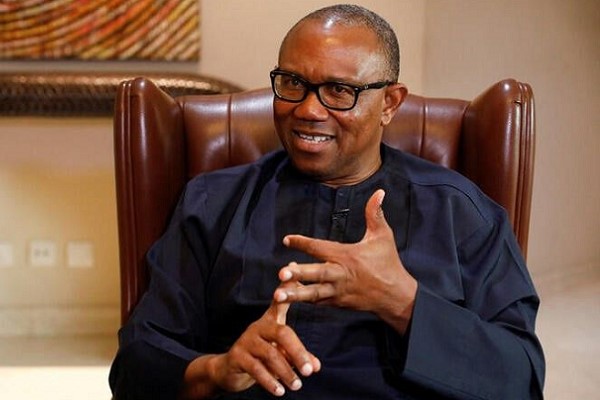Niger State Government Executive Council has approved the bill to establish the Niger State Contributory Health Scheme to allow for accessible healthcare services .
Commissioner for Health and Health Services Dr. Mustapha Jibrin disclosed this at a press briefing in Government House, Minna.
The Commissioner for Health stated that the bill became necessary in order to reduce the difficulty faced by the people in the payment of medical bills and to ensure that the people have quality and affordable healthcare services.
“The Contributory Health Scheme became necessary because a lot of people’s greatest barrier to accessing healthcare is lack of required resources for them to pay for their medical bill.”
“Now the vision of this proposed bill is to ensure access to affordable healthcare to all the people of Niger State. ”
“The benefit of establishing this Contributory Healthcare Scheme is to ensure that residents of Niger State have access to quality healthcare, protect families from financial hardship and huge medical bills, limit the rise of cost of healthcare services, maintain high standard of healthcare delivery and ensure efficiency of healthcare services “.the Commissioner said.
Dr. Mustapha Jibril who further said that the bill was jointly presented by Commissioners for Health and Health Services as well as that of Justice also stated that the bill would be passed to the State Assembly involving the Ministry of Health and other stakeholders.
While explaining how the Contributory Health Scheme would be funded in the state, Dr. Jibrin stated that ” Niger State workers would contribute 2.5 percent of their salaries while the state government would match this with 2.5 percent to generate the pool of resources needed to cater for the formal sector”. Adding that the state government would contribute another 1 percent consolidated fund to take care of people in the informal sector in the state.
He however disclosed that the sum of N 3.2 billion was needed annually to fund the scheme and that 1.8 billion would be contributed by the state government while the workers would collectively put in the balance of N1.3 billion. He noted that this position was arrived at in consultation with the Nigerian Labour Congress and her affiliate unions as well as other stakeholders.
According to him, “all enrollees will benefit from the scheme, but priority will be given to pregnant women, children under the age of 5, the aged, people with disability, the poor as well as other vulnerable groups in the state.”
The Commissioner also disclosed that the services to be provided would include: ante natal care, labour and delivery, emergency treatment, care for children under 5 years, care for adults, routine immunization and family planning.
He stated that the move was in line with the National Health Act (2014) which provided for the Basic Healthcare Provision Fund (BHCPF) as the pathway to Universal Health Coverage. Dr Jibril also noted that Niger State Ministry of Health was collaborating with the Federal Government, the World Bank, Bill and Melinda Gates Foundation and the organized private sector to expand the contributory pool to the sum of N8 billion which is the actual amount required annually to cover all the people resident in the state. Disclosing that the state government had already raised about N3.5 billion and 1 percent contribution from the Federal Government.
Dr. Jibril also disclosed that Niger state was among the 3 states and the only state in the North to benefit from the Basic Healthcare Provision Fund, adding that the state government had already raised N100 million for the scheme as part of efforts by Governor Sani-Bello’s administration to ensure that the scheme kicks off as soon as possible.
In another development, the Commissioner for Health said that the Ministry had embarked on a trip to Kenya to understudy the Kenya Medical Supply Agency.
This he said was in an effort by Governor Abubakar Sani -Bello’s administration to make available cheaper and quality drugs to the people of the state.
He said that one of the key findings from the study tour is that Kenya’s drug supply efficient and able to deliver quality health commodities at very low cost to the populace; noting that “we are already working with experts on how to translate the knowledge and experience gained to improve the state’s Drugs Management Agency”.
The Commissioner for Health disclosed the government has pledged the sum of N65 million from this year’s budget towards strengthening the sustainable drug supply system that guarantee the availability of quality drugs to the people at cheaper rate.
Meanwhile the Commissioner has also stated that the state government was set to comply with the Federal Government directive to create A State Drug Control Committee under the National Drug Control Master Plan across the 36 of the country including the Federal Capital to help fight the menace of drug.
he said the State Drug Control Committee would be set up to comprise of various stakeholders in order to help tackle the menace of drugs in the state.
He also said that the wife of the Governor, Dr. Amina Abubakar Bello has already been identified as the state Champion for the control of drugs while the Deputy Governor, Alh. Muhammad Ahmed Kesto would chair the steering committee that would oversee the control of drugs in the state.
He then listed other stakeholders to include the the Secretary to the State Government, Alh. Ibrahim Ladan, the National Drug Law Enforcement Agency, (NDLEA) National Agency for the Food and Drug Administration and Control, (NAFDAC) Pharmaceutical Council of Nigeria, The Ministeries of Information, Youth, Justice, Education and that of Women and Gender Affairs as well as other security agencies in the state.





